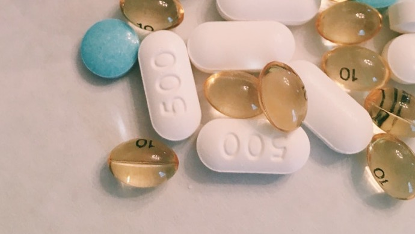Abstract: How to treat AF? According to doctor's recommendation, we can choose the most effective treatment for ourselves, eventually, in addition to the efficacy, we often need to consider the costs, rehabilitation, life or work and other factors. So, if a person suffers from atrial fibrillation, is it enough to only take medicine. What’s the effect of medicine treatment? When should we choose catheter ablation? What should we pay attention to if we can't do catheter ablation for various reasons and can only take medicine?

Atrial fibrillation is one of the most common arrhythmias in clinic
Drug therapy: could medicine cure the atrial fibrillation? What's the effect?
It’s a very tricky problem to treat AF. Drug therapy should be primarily tried under the guidance of doctors. However, it must be clear that no drug can eradicate AF at present, except for some special AF caused by hyperthyroidism, preexcitation syndrome, or heart surgery, which may not occur again after these conditions are relieved. However, drug therapy could limit or terminated the recurrence of AF. While, the focus of AF still exists, and will develop continually, which will cause the recurrence sooner or later. In conclusion, medication for AF equals to the strategy of "maintaining stability".
Surgical treatment: when to choose catheter ablation?
In patients with mild symptoms, low risk of stroke, few attacks, old age, weak body, concomitant serious diseases or poor economic conditions, conservative drug therapy could be primarily recommended. In the cases with high risk of cerebral infarction, presenting serious symptoms or heart dysfunction during AF, or occurring at younger age, catheter ablation should be to tried to cure atrial fibrillation.
It is noteworthy that the cost of AF ablation is relatively high at present, and the burden of repeated ablation is indeed heavy. Therefore, it is not necessary to ablate every AF.
What should we care for to if we could only select drug therapy
At present, most patients choose conservative treatment due to the high cost and the ambiguous therapeutic effects. Hospitals should carry out treatment according to the guidelines. The most important thing is to prevent the attack of cerebral infarction, which requires the doctor to calculate a score after a comprehensive examination. The score could judge the risk of cerebral infarction / stroke, and can guide the decision for anticoagulant treatment. In addition, patients with tachycardia need to take medicine to slow down the heart rate to preserve the heart function. Patients with cardiac dysfunction should control their heart rate under the limitation of 120 beats per minute. In patients with normal cardiac function, the condition of 120 bpm in heart rate for several months may be tolerable and need no excessive anxiety. Nevertheless, they still need to find a doctor in time to adjust drugs or judge whether ablation is needed.
Warfarin and other anticoagulants should be taken under the guidance of doctors. Recently, the administrator approved two new drugs, dabigatran and rivaroxaban, which are relatively expensive, but do not need routinely blood test.
